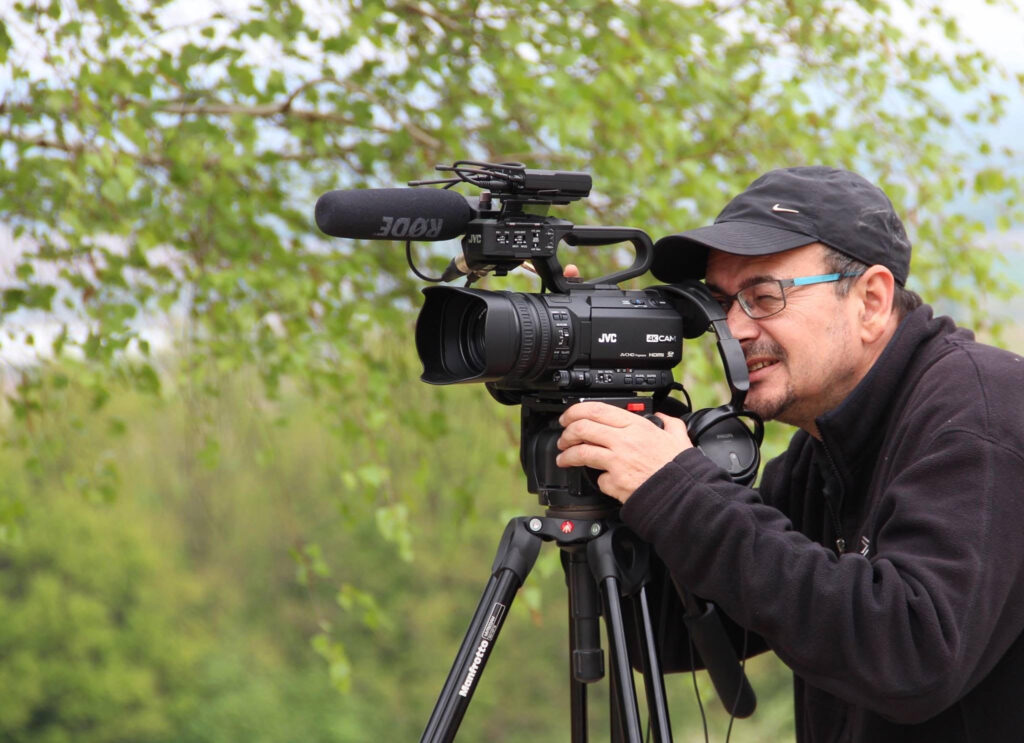(AL ALAMEIN, Egypt) — David Hands, a filmmaker and documentarian, has been a journalist for 35 years. He has extensively covered war conflicts in regions such as the Middle East between 1999 and 2005 and in East Africa through the mid-19990s.
Hands, a former professor of the writer, talked to The Click about his experience covering conflict, why he decided to move away from journalism, and advice he has for budding journalists who want to report from war zones.
This interview has been edited for length and clarity.
The Click: What was the story you wrote or filmed that affected you most when you saw it right in front of your eyes?
It was a Palestinian kid, a school girl maybe 12, 13 years old in Bethlehem. There was a crossfire, and there was a fight between Palestinians and Israelis, and this girl got shot and she died.
We heard about this, and I came to the hospital, the doctors rushed in to show me this little girl.
We had arrived before the mother, and when her mother arrived it was very emotional. Obviously, she was talking to her daughter. I don’t speak Arabic, but I could understand roughly.
The translator later [told us] that she was basically saying to her daughter, “Alright, darling, let’s get up now, let’s get up and go home. Okay stop pretending, let’s go out, let’s go home.”
Why did you move away from being a journalist?
It was a personal decision, I was always interested in more long form.
I realized that I was doing mostly hard news … and I got tired of this type of story. I wanted a bit more in-depth. I wanted to understand better, I wanted to explore and the only way I could do this was with the more long-form type of filmmaking so either news features or documentary, which is what I do.
I also wanted to move away from conflict. Yes, it took a toll. I do suffer from PTSD … seeing that stuff that you see or also leading those experiences, which are not just what you see, but it’s your own personal experience, your life being under threat.
You get fatigued, so, and I did, I got really tired, and I started feeling that I couldn’t perform a hundred percent.
If you can’t perform a hundred percent, you’re not only risking your own life, but you’re asking the life of your colleagues. So yeah I think that was the main reason, it was a personal reason.
What advice would you want to give to younger journalists who want to cover conflict or report in war zones?
I think the best advice I can give is for people who go to war zones or any of these [is to] be prepared and it’s okay to be afraid. I mean, it’s normal.


